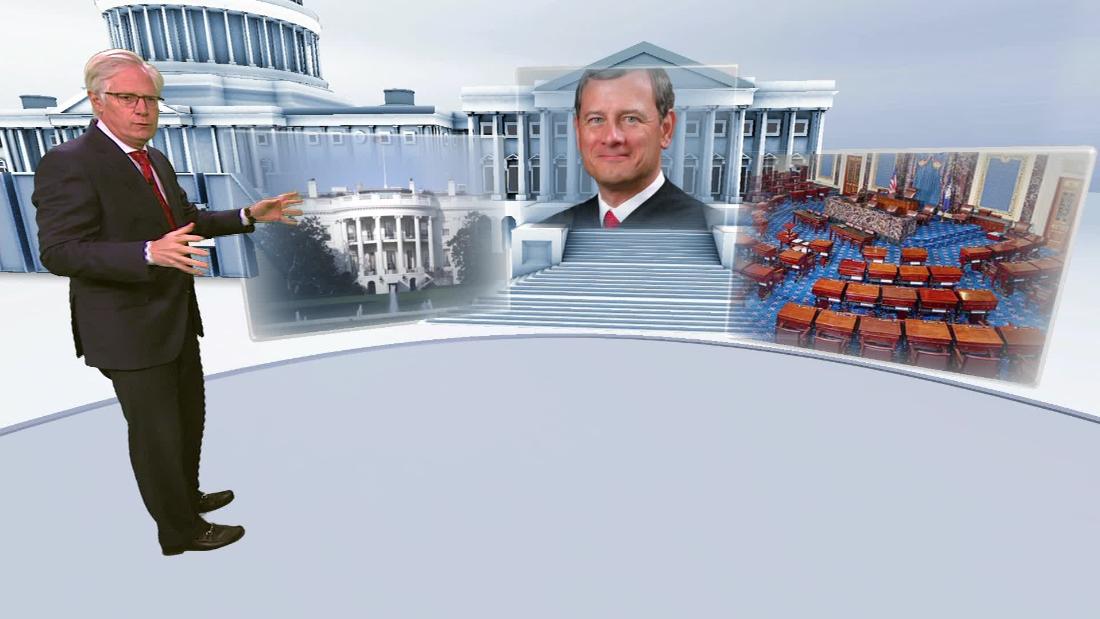[ad_1]
Indeed, this is a cover-up, unfolding right before us.
Here are a few things about this August meeting that cannot be reasonably contested, regardless of political ideology. The meeting was important to the overall Ukraine timeline. At that meeting, Trump discussed with his key advisers whether to release the foreign aid to Ukraine. The team of advisers urged Trump to do so, but he refused.
Maybe the suppressed documents and testimony truly exonerate Trump, or — perhaps more plausibly — cast doubt on the central allegations of abuse of power contained in the articles of impeachment. But unless Trump agrees to release the missing information, we will never know. Common sense, and my own prosecutorial experience, tell us that Trump is likely hiding evidence for the most common reason that anyone hides evidence in any case: because he knows it is devastating to his cause.
Now your questions
Karl (Arkansas): If McConnell refuses to allow witnesses to testify at the impeachment trial, do Democrats have any legal recourse?
If McConnell and Senate Minority Leader Chuck Schumer cannot reach a negotiated agreement, then Senate Democrats have limited options to compel witness testimony against the will of the Republican majority.
Debbie (Pennsylvania): If new evidence comes out between now and a Senate impeachment trial, can that new evidence be used during the trial?
Yes, theoretically, newly discovered evidence can be used during the Senate trial. There is no time limitation requiring that all trial evidence be discovered by a certain date or a specific amount of time before the trial begins.
This is similar to the normal criminal process. Prosecutors have “discovery” obligations to turn over evidence to the defense, typically in advance of trial. But if prosecutors obtain new evidence shortly before or even during trial, they are not barred from using it, so long as they turn it over promptly to the defense — and they did not intentionally delay in obtaining the evidence for tactical purposes. I’ve had cases as a prosecutor where we discovered important evidence during trial, turned it over to the defense and then used it at that same trial.
If new evidence does emerge, the question will not be whether Democrats can use it at trial, but rather whether the Republican majority will permit it to be used at trial (or, as discussed above, whether Republicans will agree to any evidence at all).
Susan (Texas): Is the President’s attendance required in the Senate impeachment trial?
While Trump certainly could elect to attend, do not expect him to be there. Just by showing up in the well of the Senate during trial, Trump would draw mass public attention to the process, which likely would not serve his political interests.
Nor is the President required to testify. Theoretically, the House impeachment managers — the yet-to-be-selected House Democrats who will present the case for impeachment — could request Trump’s testimony. But that seems exceedingly unlikely, given that the House itself never sought to subpoena or interview Trump. And if he were subpoenaed for the Senate trial, Trump could either invoke his Fifth Amendment right against self-incrimination or challenge the subpoena in court.
Trump does have the right to choose legal counsel to represent him at trial. Trump reportedly will tap White House counsel Pat Cipollone to lead his defense team, with other members of the defense team to be named as trial approaches.
Three questions to watch
1) Will Murkowski break ranks and support Democratic demands for witnesses, and will any others follow?
2) Will McConnell and Schumer meet and make any progress toward a negotiated deal on the impeachment trial process?
3) Will the Senate set a start date for the impeachment trial?
[ad_2]
Source link


